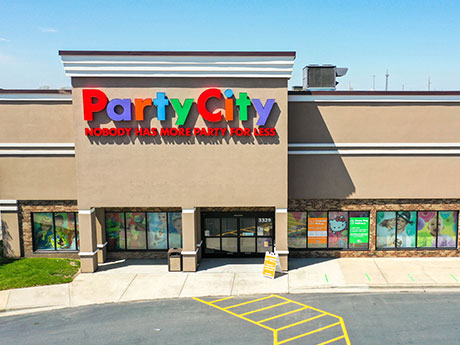Woodcliff Lake, N.J., and Coppell, Texas — In a one-two punch of holiday retail bankruptcy announcements, Party City has issued a formal statement declaring that it will close all its U.S. stores within the coming months, while The Container Store has also formally filed for Chapter 11 bankruptcy protection.
CNN first reported on Dec. 20, 2024 that Party City, which filed for Chapter 11 bankruptcy protection in January 2023 to restructure its debt, would now be liquidating. The New Jersey-based entertainment accessories retailer, which does business as Party City Holdco Inc., said that it intends to close all of its approximately 700 stores and that it has commenced going-out-of-business sales.
The Container Store issued a statement late on the night of Dec. 23, acknowledging that it had filed for Chapter 11 protection in the United States Bankruptcy Court for the Southern District of Texas. The metro Dallas-based retailer, which has about 100 stores nationwide, will “implement a recapitalization transaction to bolster its financial position, fuel growth initiatives and drive enhanced long-term profitability,” according to the statement.
Party City’s 2023 petition for Chapter 11 protection was also filed within the U.S. Bankruptcy Court for the Southern District of Texas. Party City’s statement on its impending liquidation stated that the retailer’s senior lenders have committed to providing financial support to fund operations through the liquidation, which The New York Times reports could be completed as soon as late February.
Similarly, The Container Store’s statement noted that the company had the support of “90%” of its term loan lenders and that these entities had committed to providing the retailer with fresh financing to restructure its debt and maintain operations. The financing is meant to ensure that The Container Store continues to meet its monetary obligations to vendors, partners and stakeholders.
“The Container Store is here to stay,” President and CEO Satish Malhotra said in the statement. “Our strategy is sound, and we believe the steps we are taking today will allow us to continue to advance our business, deepen customer relationships, expand our reach and strengthen our capabilities.”
Party City was founded in 1986. According to Yahoo Finance, the company was able to shed about $1 billion in debt via the 2023 proceedings, but inflationary pressures and growing competition from niche online retailers stymied its revenues and cash flows.
The Container Store, which first hung up its flag in 1978, also owns Swedish electronics retailer ELFA, but those stores will not be impacted by the Chapter 11 filing. The company has opened new stores with footprints of about 15,000 square feet in the last 12 months, including one in Miami and one in Princeton.
Big Lots Sale Falls Through
In addition to the announcements issued by Party City and The Container Store, another brick-and-mortar retailer that recently file for bankruptcy, Big Lots, made news just before the holidays.
The Ohio-based provider of home furnishings and décor filed for Chapter 11 bankruptcy protection in September. In conjunction with that filing, Big Lots stated that it had entered into a sale agreement with Los Angeles-based private equity firm Nexus Capital Management. But leading up to the weekend of Dec. 20, the company issued a statement to the effect that it now doubts that the sale will close.
While Big Lots did not entirely rule out the possibility of entering into a different sale agreement with a new acquiring entity — setting a timeline of early January for the completion of such a deal — the company did say that it is “preparing to commence going-out-of-business sales at all remaining Big Lots store locations.”
Big Lots, founded in 1977, operated as many as 1,400 U.S. stores as of the beginning of this year.
With brick-and-mortar retail vacancies at near-record lows in most major U.S. markets, the presumable expectation is that the former stores of Party City and Big Lots will be highly sought-after commodities among various users. REBusinessonline.com has reached out to retail consultants for more insights on what types of tenants might be most interested or suited to backfilling those spaces, as well as to gain a better sense of the timelines and manners under which the stores might be re-tenanted.
— Taylor Williams
SOURCE: www.REBusinessOnline.com
